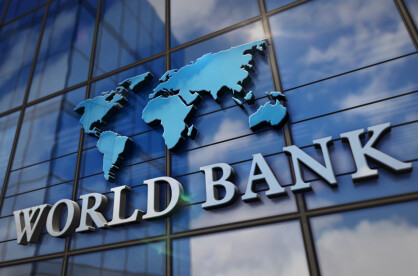De-dollarization alone not the solution
The government needs to restore macro stability before implementing a de-dollarization policy.

The government needs to restore macro stability before implementing a de-dollarization policy.

Most economists are skeptical whether recently announced government's de-dollarization policy can actually solve the exchange rate issue in the Maldives without taking steps to resolve the major fundamental disequilibrium in the economy.
According to the IMF (2005), dollarization can be defined as the holding by residents of assets and liabilities denominated in a foreign currency that does not enjoy legal tender status. Dollarization can take the form of full or official dollarization and partial or de facto dollarization. In the Maldives, this ratio has historically been very high.
Based on the ratio of foreign currency deposits (FCDs) held by residents to a broad money aggregate, Maldives can be considered 'highly dollarized' as the ratio has gradually increased to over 30 percent. During 1980, the ratio was very low at 15 percent, but since the Maldives started to adopt a pegged exchange to the US dollar in 1994, it has increased, especially every time a devaluation of the exchange rate takes place.

High dollarization has followed the growth in tourism and has been driven by institutional and structural factors in the economy since the main inputs to tourism require dollars. This is evident from the estimated positive and high correlation coefficients of tourist bed nights to dollarization ratio (based on foreign currency deposit to total deposits). In addition, the Maldives has very high credit dollarization (ratio of foreign currency loans to total loans by the commercial banks) at above 50 percent (2015).
The major reasons for this, according to a former Governor are low levels of domestic savings, the dominance of foreign banks in the financial sector and the high degree of openness of the economy. As a result, with the high level of deposit dollarization in the Maldives, banks seek to match their foreign currency position by extending foreign currency loans.
Hence, structural changes and financial deepening of the economy is needed if dollarization is to be reduced in the longer term. In this regard, IMF recommendations include the introduction of local currency–denominated securities with credible indexation systems, development of markets for instruments to hedge currency risks, enhancement of non-banking institutions and capital markets, but it appears that the government has taken another route to achieve this.
After a brief a fall in March 2021, the black market exchange rates of Rufiyaa again increased by over 20 percent in June-July, and the government was pressured to detail the policy changes promised by the President. In response, on 29 July 2021 Minister Ameer explained that in order to implement the de-dollarization policy, the MMA has already finalised the regulation after consultations with various stakeholders and the IMF, and that implementation was getting delayed due to COVID-19 lockdown.
Prior to that, the MMA had, in March, slowly started trying to enforce parts of the regulations starting with a notice to all banks operating in Maldives to stop card transactions made in US dollars within the country. Initially a deadline of 15 April 2021 was set but again due to lockdowns and spike in COVID-19 cases, it was delayed to 15 August 2021. As such, it is clear that the government has prioritized changes to monetary regulations, capital control and enforcing Rufiyaa as the legal tender to implement the de-dollarization policy.
According to the Monetary Regulation of 1987, 'it is prohibited to use a currency other than Maldivian Rufiyaa for the payment of any merchandise of businesses conducted in the Maldives.' However, the use of foreign currency, specifically the use of the US dollar, is quite extensive in the Maldives, with the dollarization ratio now close to 50 percent.
Even if the Rufiyaa is the legal tender, the US dollar is also used to fulfil the basic functions of money, including as savings. Hence, it is very doubtful that this policy can be implemented, since the supervision of monetary regulations is very weak and the system needs to be developed to enhance the MMA’s capacity. In March 2021, Governor Ali Hashim had said that all transactions done within the Maldives will be made in Rufiyaa after the MMA’s payment system is introduced.
Similarly, many critics argue that the exceptions given in the regulation must be gradually removed, especially in the case of payment of taxes, fees and levies to the government by foreign income earning sectors such as the tourism sector. As an administrative concession this was temporarily halted during the last year for six months and tourism sector businesses were able to pay Tourism GST in Rufiyaa instead of US dollars.
However, since the main source of Gross International Reserves comes in the form of taxes from the tourism sector, unless an adequate reserve is built, and the MMA has confidence that banks could supply enough foreign exchange to the public, it would not be able to continue with this exception.
In addition, even though the Maldives has maintained a very liberal capital account for a very long time, after the President's speech in February 2021, a motion in the Parliament called for restrictions of free movement of dollar earned, especially in the tourism industry, and this amounts to a partial capital control.
There is no debate that the Monetary Regulation needs serious revision in line with the development of the financial market. Similarly, the role and responsibilities of over 300 money changers need to be clearly established, so that the MMA can better supervise them and ensure the creation of proper foreign exchange bureaus as in other countries.
However, regulations and capital controls will not solve the foreign exchange problem overnight. It may, in fact, worsen the situation if there is a loss of confidence in and credibility of the exchange rate system. The main issues with these changes are, that they are too drastic, sudden, the timing - and the illusion that this would solve the foreign exchange problem without tackling the key fundamental issues that has caused the disequilibrium in the first place.
For countries pursuing de-dollarization policies, the IMF, based on empirical studies in Latin America and Emerging Europe, has recommended to use a 'a menu of policies aimed at macroeconomic stabilization, with a complement of prudential regulations.' As such, the MMA and the government needs to re-focus policies around the key macroeconomic disequilibrium in the economy.
Even before the COVID-19 pandemic, the Maldives has been suffering from twin deficits – fiscal and current account. During 2015-2019, the budget deficit was on average 6 percent, while the current account deficit was at 21 percent, and public debt reached 78 percent of GDP (MVR68 billion).
As with previous shocks to the economy, it has exacerbated these fragilities, especially with fiscal sustainability totally neglected. As such, the budget deficit reached over 28 percent of GDP and for the first time since 2012, the Fiscal Responsibility Act was suspended and the MMA monetized over MVR4 billion (7 percent of GDP). Public debt has reached 150 percent of GDP (MVR86 billion).
As such, with the fall in the foreign exchange earnings by more than 50 percent to USD1.5 billion, and the monetization of Rufiyaa to finance the budget deficit is the main cause of the fundamental disequilibrium in the foreign exchange market.
As a result, excess liquidity has increased from MVR2 billion in 2019 to MVR4 billion in July 2021, while during the same period, the monetary base of MMA has increased by 20 percent. Consequently, the MMA needs to mop up the excess liquidity in the market using active open market operations and selling more dollars to the foreign exchange market.
If the government wishes to implement a de-dollarization policy successfully, restoring fiscal imbalance needs to be tackled before successful implementation of prudential regulations. The government should be aware that successful de-dollarization takes time, and therefore proper sequencing of policies is important, as if not, it will negatively affect public confidence. In the end, public and private sector would again have to bear the brunt of policy failures.



